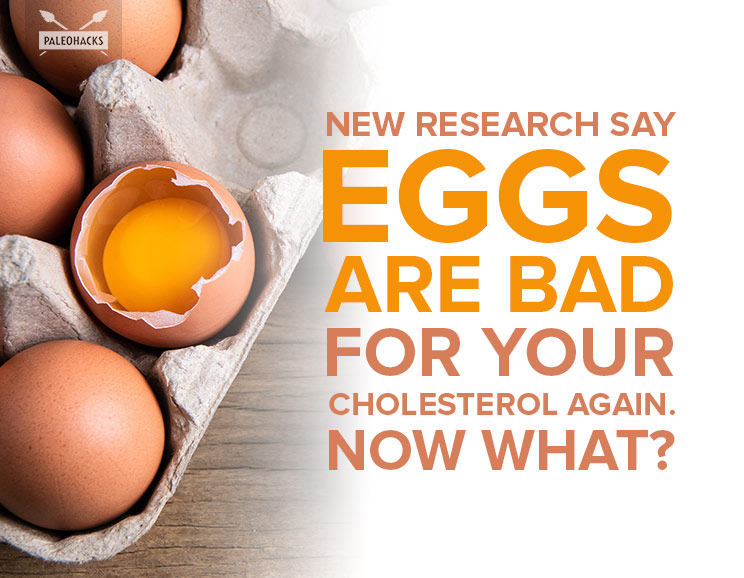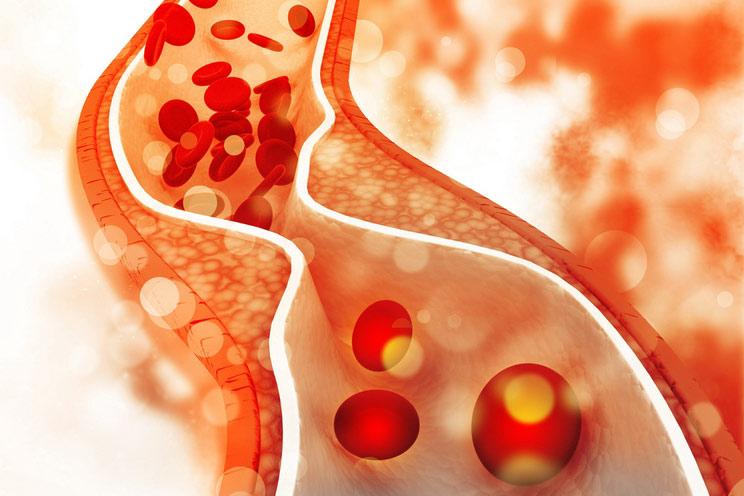Science sends us some pretty mixed messages about how healthy it is to eat eggs regularly. Some studies claim that eggs are a huge part of a healthy diet, while others say they should be avoided because they cause heart disease.
Earlier this year, Northwestern University’s School of Medicine released a study showing a new link between eggs, cholesterol, and heart health.
In this study, researchers followed six groups of more than 29,000 people in the U.S. for 17 years. The study found that consuming 300 mg of dietary cholesterol per day – or about the equivalent to 1 ½ eggs – was associated with a 3.2 percent higher risk of heart disease and a 4.4 percent higher risk of early death. Additionally, each half of an egg eaten per day was associated with a 1.1 percent higher risk of developing cardiovascular disease and 1.9 percent higher risk of early death. (1)
Suffering from Diabetes or blood sugar imbalance?
Grab our FREE Diabetes Guide & 7 Day Meal Plan here!
While this evidence against eggs sounds scary, it’s important to know that these results aren’t exactly new. Older research also showed dietary cholesterol may raise cholesterol levels, which was why guidelines in the past recommended consuming no more than 300 mg of eggs per day. However, these guidelines were loosened after newer studies claimed saturated fat was the main cause of high cholesterol – not the cholesterol we eat. (2)
There are also a few issues with the research methodology in the most recent study. First, scientists based data in this study off of what people said they ate, which can be inaccurate. Instead of relying on controlled data, researchers relied on recall of the participants.
In addition, the study didn’t specify how the eggs were prepared. This means that participants may have cooked their eggs in unhealthy vegetable oils, which we know plays a role in heart disease. (3)
Is High Cholesterol Really the Cause of Heart Disease?
One of the biggest issues with the argument against eggs is the idea that cholesterol is the true cause of heart disease. In the recent Northwestern University study, it’s assumed that cholesterol caused participants’ increased heart disease risk and early mortality. However, other research contradicts this.
Many studies show that people (especially the elderly) with higher cholesterol levels tend to live longer than those with lower levels. There are also other studies showing no link at all between heart disease and cholesterol. (4)
Even when we take cholesterol out of the equation, similar studies show no link between eggs and heart disease. In fact, a study that was published in 2018, just before Northwestern University’s, revealed that eating one egg a day was not associated with heart disease or mortality. They even compared higher consumption of eggs (seven per week) with lower consumption of eggs (one or less per week) and found no difference in the results. (5)
Keep in mind that other research shows cholesterol levels are not related to the development of heart disease. Yes, it’s possible that eggs raise cholesterol, but we don’t know for certain if that cholesterol leads to cardiovascular problems. (6)
Why Overall Diet Matters

It’s important to remember that there are many other factors at play in these studies. Since it’s difficult to isolate eggs alone in a diet, we need to consider what else participants are eating alongside the eggs. If researchers assume that a traditional, low fat, food-pyramid-style diet containing grains and other items is part of the “healthy” diet the participants consumed, it may cause inflammation that skews results.
Inflammation can mess with the function of our cholesterol molecules, leading to heart disease problems like atherosclerosis. (7) While the participants in this study were considered healthy in that they didn’t smoke and were active, we also have to consider if they ate an otherwise inflammatory diet that could have interfered with the way their body uses the cholesterol it received from the eggs. (8, 9)
So, Do You Need to Give Up Eggs?
Many researchers believe that eggs are a valuable part of any diet, providing important nutrients that many of us are lacking.
Eggs are packed with protein and contain a hefty dose of vitamins A, E, and potassium. Egg yolks, in particular, contain choline, which is crucial for liver, muscle, and brain function. This combination of essential nutrients is even more complete than most types of meat. (10)
If you avoid eggs entirely, you miss out on an affordable, rich source of these vitamins and minerals.
It’s also important to consider the quality of the eggs you’re eating. Studies show that pasture-raised eggs contain more beneficial omega-3 fatty acids than conventional eggs, which can also help prevent heart disease. They are also higher vitamins A and E. (11, 12) For this reason, it’s best to buy pasture-raised eggs.
Guidelines for How to Eat a Healthy Breakfast

Since eggs are packed with so much nutrition, we recommend that you include them in your diet a few times a week. However, it’s always wise to eat a varied diet, so consider swapping eggs for coconut yogurt or fruit for breakfast in lieu of eggs two or three times a week.
If you need some inspiration for eggless breakfasts, consider these popular recipes:
The Bottom Line
Too much of anything (even a natural or healthy food) can have negative effects. The same concept applies to eggs, just as it does to certain vitamins and herbs.
Balance is key when it comes to food, as in all things. While the debate continues on our favorite breakfast food, we recommend enjoying pasture-raised eggs in moderation a few times a week as part of a healthy diet.
Curious about the difference between white and brown eggs? Read up before you buy your next dozen, then head over to these 43 egg recipes that include everything from keto breakfast burgers to pesto pizza!



 Keto Cinnamon Waffles with Coconut Glaze
Keto Cinnamon Waffles with Coconut Glaze








Show Comments